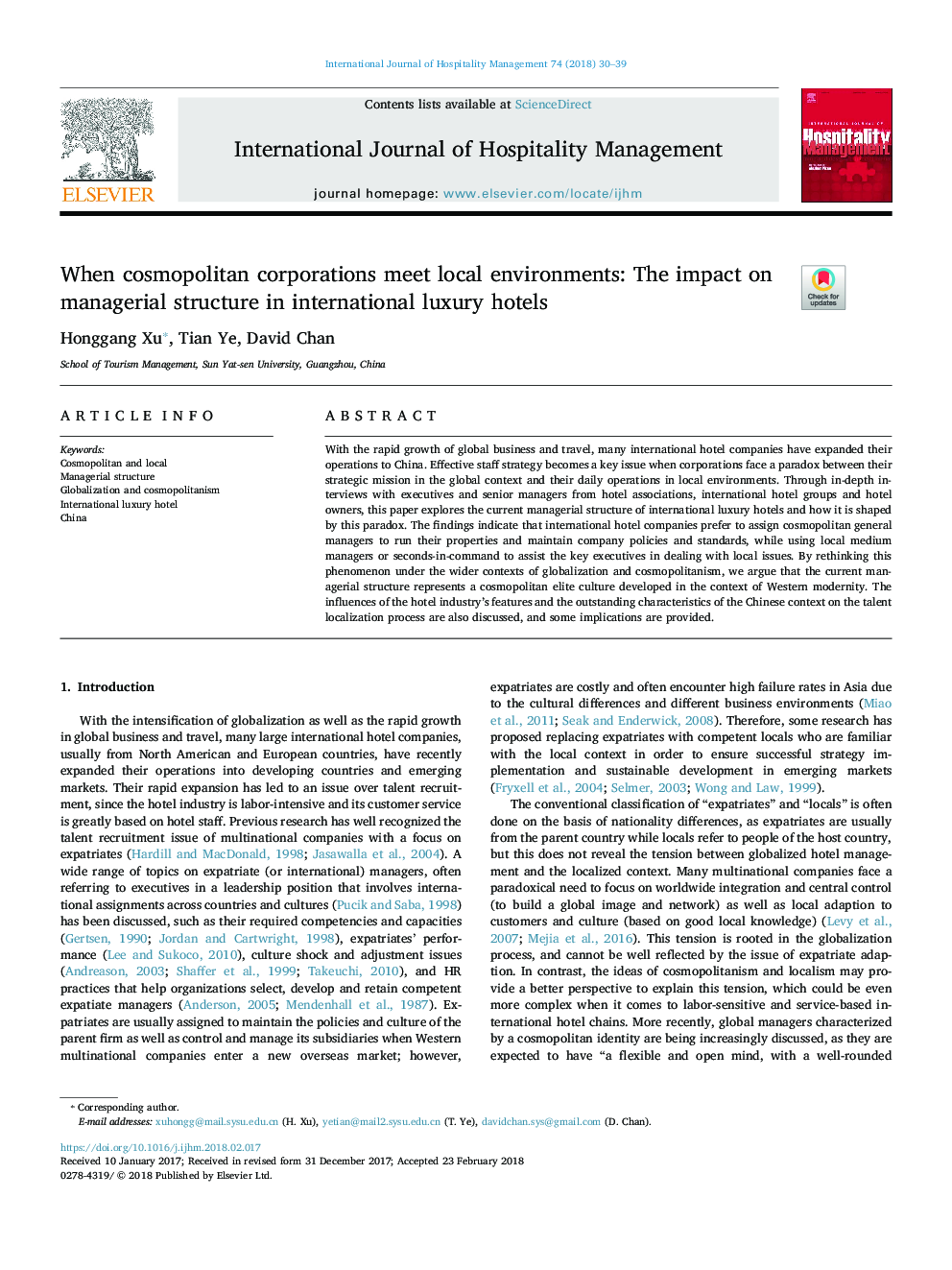| Article ID | Journal | Published Year | Pages | File Type |
|---|---|---|---|---|
| 7418967 | International Journal of Hospitality Management | 2018 | 10 Pages |
Abstract
With the rapid growth of global business and travel, many international hotel companies have expanded their operations to China. Effective staff strategy becomes a key issue when corporations face a paradox between their strategic mission in the global context and their daily operations in local environments. Through in-depth interviews with executives and senior managers from hotel associations, international hotel groups and hotel owners, this paper explores the current managerial structure of international luxury hotels and how it is shaped by this paradox. The findings indicate that international hotel companies prefer to assign cosmopolitan general managers to run their properties and maintain company policies and standards, while using local medium managers or seconds-in-command to assist the key executives in dealing with local issues. By rethinking this phenomenon under the wider contexts of globalization and cosmopolitanism, we argue that the current managerial structure represents a cosmopolitan elite culture developed in the context of Western modernity. The influences of the hotel industry's features and the outstanding characteristics of the Chinese context on the talent localization process are also discussed, and some implications are provided.
Keywords
Related Topics
Social Sciences and Humanities
Business, Management and Accounting
Strategy and Management
Authors
Honggang Xu, Tian Ye, David Chan,
